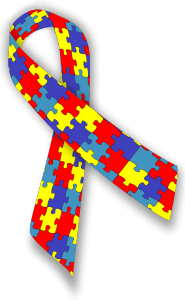 Looking at what an autistic support specialist does can help you decide if you want to attend college and finish a graduate program in this area. Most of those working in this specialized area have at least one certificate in addition to their degrees. They serve multiple clients and often spend only a small amount working with their clients every few weeks or months. Autism support specialists usually have a base of operations in one city or state and travel across the world to help others.
Looking at what an autistic support specialist does can help you decide if you want to attend college and finish a graduate program in this area. Most of those working in this specialized area have at least one certificate in addition to their degrees. They serve multiple clients and often spend only a small amount working with their clients every few weeks or months. Autism support specialists usually have a base of operations in one city or state and travel across the world to help others.
Create Intervention Plans
Those trying to find out what an autistic support specialist does will find that they often create intervention plans used by families. Autism is a medical condition that leads to developmental delays. Some of those born with autism never learn how to speak or perform daily tasks. According to the University of Wisconsin, those working in the field need an autism specialist certificate, and this school and others offer these programs online. During the intervention phase, you look at the symptoms of the condition and what the family does and how they act around the client.
Develop Treatment Plans
As an autism specialist, you’ll also spend some of your time developing treatment plans for your clients. The type of treatment that you use often depends on the skill level and capabilities of your client. A younger child might do well with ABA therapy, which uses simple pictures and similar routines to teach the child how to ask questions, respond to questions and handle other daily tasks. You need to look closely at how well your clients respond to different situations, how often parents and others can work with the clients and other factors to determine the best treatment plan.
Train Educators and Workers
When finding out what an autistic support specialist does, you’ll also find that they are the ones responsible for training educators, parents and anyone else working with the client. After deciding on the best course of treatment, you’ll work out the types of therapies used and the skills that your clients need. You’ll spend some time training therapists and others who work with the client, but you’ll also watch those workers in action to ensure they closely follow the rules you put in place. Any deviation from the standard course of treatment can significantly impair your client’s progress.
Provide Support to Families
As most autism specialists tend to live a far distance away from their clients, part of your job involves remaining in contact with the families and loved ones of your client via the phone and Internet. You also act as a support system to those families. You listen to any complaints or issues that they have about the situation and find solutions to their problems. Some professionals specialists even offer support via Skype and other Internet programs. These programs let you watch those working with your clients and keep track of the progress that those clients make.
Related Resource: Become an Occupational Therapist
Autistic specialists work with clients to improve their skills and help them take care of themselves and learn new tasks. Before choosing this as your career, it’s important that you think about what an autistic support specialist does, including how those specialists assist parents with intervention programs, provide training to anyone who works with or spends time with those clients and support the loved ones of their clients.

